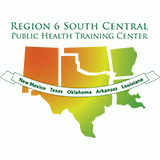
Gaining New Perspectives of Flood Response in a Texas Community
Course Description:
The goal of this course is to provide a learning opportunity for participants to demonstrate leadership, persuasive communication, crisis management, and action plan development skills while dealing with coastal flooding scenarios that impact their local Texas communities.
This course is designed to provide vital information about the roles and responsibilities of Texas-based Incident Command System (ICS) Commanders and Emergency Team Managers. It will describe the issues of critical infrastructure, environmental health, vulnerable populations, and infectious diseases that occur with flooding events.
The course will also challenge participants to use their knowledge to critically think about the issues and determine the best courses of action for their communities.
Target Audience
Academic Faculty/Staff, Federal Government Employees, State Government Employees, Local Government Employees, Non-Government Employees and Students
Learning Objectives
- Identify and utilize critical infrastructure during an emergency
- Identify and respond to environmental hazards caused by flooding
- Outline plans for assisting vulnerable populations
- Recognize the dangers of vector-borne diseases following floods and identify mitigation measures
Instructor:

Alyssa McNulty, MPH
Alyssa Danielle McNulty, MPH has a background in epidemiology and pedagogy. She started her career by earning a B.S. in molecular biosciences and biotechnology from Arizona State University in 2015. After graduating from ASU, she attended UT Southwestern Medical Center as a laboratory technician, where she was able to participate in a medical mission trip to El Paso, Texas. The mission trip opened her eyes to public health needs in the state and at large. Alyssa graduated from Texas A&M in 2018 with an MPH in epidemiology. While she was working on an MPH, she taught microbiology labs on campus. Immediately after graduating with an MPH, she began pursuing a DrPH with a focus in infectious disease epidemiology. Concurrent to her DrPH work, she has been working as a TA for an undergraduate course titled, Emergency Management in Public Health. As a part of that course, students have participated in different simulations for outbreaks and pandemics which has informed her interest in creating this course.
Available Credit
- 1.00 Participation/CETulane Professional and Continuing Education (PaCE) awards 1.00 hour(s) of credit for completing Gaining New Perspectives of Flood Response in a Texas Community
Price
Required Hardware/software
System Settings
This course is designed to work most effectively if your computer and internet connection meet certain minimal requirements. This course can be accessed using a Windows 10 PC or a Mac with High Sierra1, Mojave, or Catalina. Pop-up blockers should be disabled when viewing the course. Internet Explorer 11 (for Windows 10), or the current version of Google Chrome, Mozilla Firefox, or Apple Safari (for Windows 10 and or Mac) is required. Many of our courses require Java and JavaScript enabled.
Links to External Websites
Links to websites outside this course will open in a new window or tab. Some browsers may minimize the course window. If this occurs, maximize the course window to return to the course.
Adobe Acrobat Reader (for desktops and laptops)
Adobe Acrobat Reader is required to access some documents in this course. If you need to download a free copy of Acrobat Reader, click here.
Internet Connection Speed
A minimum download speed of 1.5 Mbps is recommended for an optimal experience, which is commonly the speed associated with a basic DSL or a cellular/satellite connection. A faster connection, such as cable or fiber service, with further enhance your online experience. A Wi-Fi connection is generally acceptable, but it is dependent upon one of the two services mentioned above. You can check your internet connection speed at http://www.speedtest.net/.

 Facebook
Facebook Twitter
Twitter LinkedIn
LinkedIn Forward
Forward